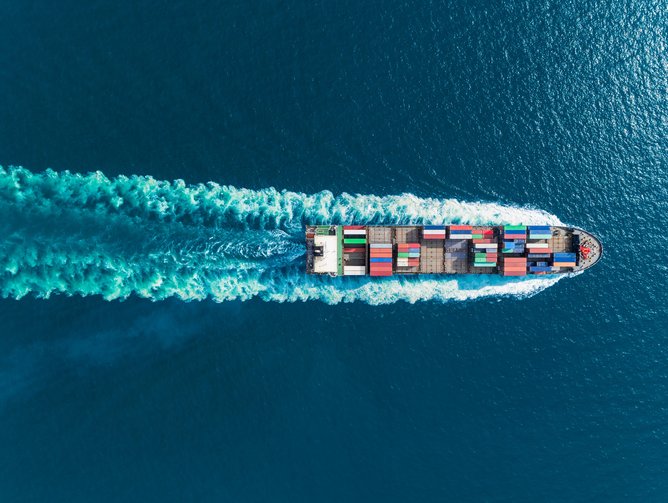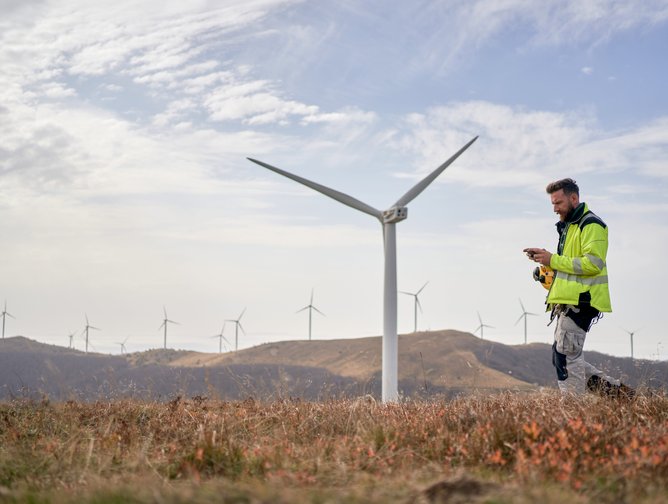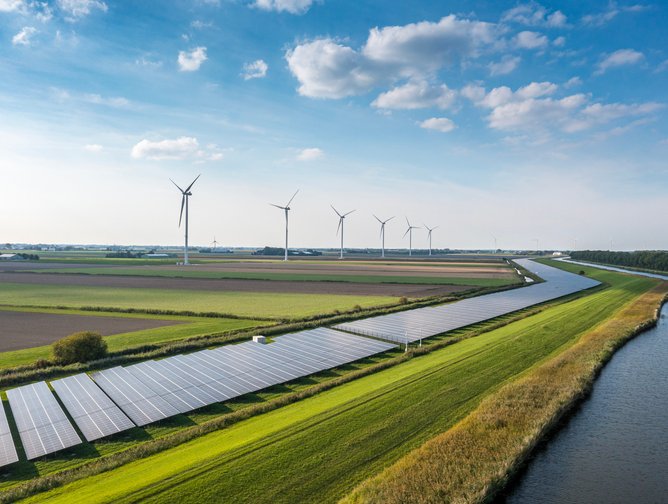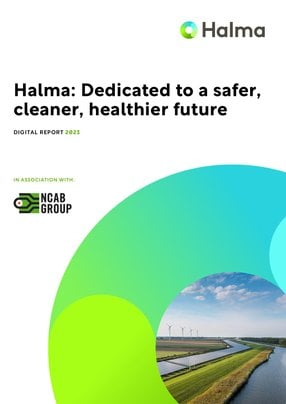Halma: Dedicated to a safer, cleaner, healthier future
For half a century, Halma has been a provider of innovative products and services offering life-saving solutions to some of the key problems faced in the world today. Driven by its purpose to ‘grow a safer, cleaner, healthier future for everyone, everyday’, Halma’s group of 45 companies operates across three core market areas: safety, environment, and health.
“We have been a purpose-led business for 50 years. It powers every decision we make, from choosing our markets to finding the right talent. It attracts people who want to solve the same problems as we do, and keeps us focused on the things that matter to our business,” explains Halma.
Halma’s sustainability growth model
A core principle for Halma is sustainable action, the group operates a Sustainable Growth Model acquiring small to medium-sized companies that align with its overall purpose driving long-term growth.
Actively managing its portfolio of companies through investment and acquisitions, Halma seeks new opportunities to grow through mergers and disposals where market conditions change.
With this approach, Halma’s strengths are resilience, diversity, growth and earnings, while maintaining a conservative capital structure and delivering high returns.
“We continually invest in our business and our people to maintain strong positions in our markets. The highly cash-generative nature of our companies allows us to fund this investment, both to support organic growth and drive growth through acquisitions,” says Halma.
“Talent, innovation, technology and sustainability are core elements of our growth strategy. This includes investment in developing our people, our products and services (including through research and development), our intellectual property, and our knowledge of the markets we serve.”
Water for Life
Launched in partnership with WaterAid in 2020, Water for Life raises awareness of the daily challenges millions face in accessing clean and safe water. In particular, the campaign focuses on a network of villages in northern India where the groundwater is contaminated with arsenic.
“Water is the most critical resource on the planet, yet millions worldwide still don’t have access to clean water close to home [...] The partnership will highlight the global issue of access to safe water by providing 8,000 people in India with clean drinking water,” explains Halma.
“The increasing role of technology to support sustainability is something that Halma believes in, and sees increasing demand for, in the long term. If we are to live up to our goal of making the world a safer, cleaner, healthier place there seems no better time to bring our life-saving technology to a global challenge,” says WaterAid.
Within its group, Halma has six water companies - HWM, Palintest, Sensorex, Minicam, Hydreka and UV Group - they all focus on solving different parts of the global water challenge.
Constance Baroudel, Divisional Chief Executive of the Medical & Environmental Sector for Halma plc, says: “Our purpose is to grow a safer, cleaner, healthier future for everyone, every day by making innovative technologies that help solve global challenges. Having access to clean, safe drinking water and basic sanitation is central to living a healthier life, and the current global pandemic has only served to demonstrate its importance.
“We look forward to drawing on our technological expertise, as well as the passion of our employees, in supporting WaterAid to provide the communities of Bhagalpur and Buxar with a clean water supply, which is a basic and essential everyday requirement for children to grow up healthy and families to earn a living.”
Scope 3, supply chain and procurement
“Sustainability has always been at the core of our growth strategy. We acquire and grow businesses in safety, environmental and healthcare markets that solve real problems in the world – enabling our customers to provide safer environments, protect life-critical resources, and deliver better healthcare,” explains Halma.
With this in mind, Halma has a three-pillar approach to its sustainability:
- Driving growth in sustainability
- Supporting its people
- Protecting the environment
“For our companies, our three sustainability pillars together translate into a challenge to ‘do more good’ and ‘do less harm’,” says Halma.
When it comes to protecting the environment, Halma drives its focus towards sustainable product design and reducing emissions.
“The majority of our environmental footprint arises within our wider value chain and is often embedded in the design of our products and services,” notes Halma. “We are also committed to reducing our own emissions while supporting our companies to pursue climate-related opportunities.”
Looking closer at Halma’s Scope 3 emissions in particular, the group has spent the last year - 2023 - completing a full estimate of its Scope 3 baseline, and begun the process of setting appropriate short and long-term targets.
Key focus areas for the group include:
- Integration of sustainability into procurement and supplier engagement systems
- USe of Halma’s group-wide EcoVadis tool to engage suppliers
- Efficiency of transport and logistics including refighting choices
- Integration of sustainable design into NPD
- Development of life cycle analysis (LCA) capability and understanding
- Business travel protocol
Helping customers reduce their carbon footprint
Outside of its own operations, Halma has been looking at ways in which it can also help its customers reduce their supply chain emissions (Scope 3).
With a large portion of environmental impact coming from the manufacturing and shipping of products to customers globally, Fortress - a Halma company - has been working on finding a more sustainable material for its products while maintaining their robust quality.
Knowing that changing the material - from zinc - to a more sustainable metal could have a significant impact. As such the company moved to a recycled material that is lighter to ship resulting in significant carbon savings.
“The team began designing a new casing for their flagship Amgard product range using recycled aluminium. It is a lighter metal that, crucially, is 100% recyclable forever. After rigorous testing to ensure it met Fortress’s high safety standards, they have designed a new aluminium casing that is 90% lighter than the original and just as durable,” explains Halma.
Keeping workers and drivers safe in global logistics
In the wake of COVID-19, the shift to digital business models has rapidly expanded the ecommerce and global logistics industries.
“Research is forecasting the global logistics market to be worth around US$12 trillion in 2023, almost triple its 2018 value. This rate of growth has put additional pressure on the transportation and warehousing industry to move goods quickly, safely, and efficiently,” explains Halma.
“The most recent statistics reported 819 deaths and 270,000 injuries occurring in the USA in one year. Of these, more than 25% of accidents happened at loading docks, with accidental drive-aways accounting for around a quarter of these accidents. Each accident is estimated to cost US$189,000 and for every accident, there are 600 near misses.”
With most accidents caused as a result of misunderstanding or miscommunication, SPS - a Halma company - has designed an innovative solution using technological advancements to remove the need for verbal communication when it comes to loading updates. As such this solution prevents accidental drive-aways by locking the delivery vehicle to the loading bay door for safe loading and unloading.
“Initially developed in response to a customer request, the Salvo Loading Dock Safety System is now installed at tens of thousands of loading bays globally. Once implemented, customers report no accidental drive-offs, keeping workers and drivers safe and ensuring compliance with all Health and safety regulations,” explains Halma




- Honda Creating a Comprehensive Electric Vehicle Value ChainSustainable Sourcing
- Sustainable Procurement Pledge: Shaping Global CollaborationSustainability
- How Tipalti is Revolutionising Procurement OperationsProcurement Strategy
- How is Sievo Guiding the use of AI in Procurement?Technology & AI


